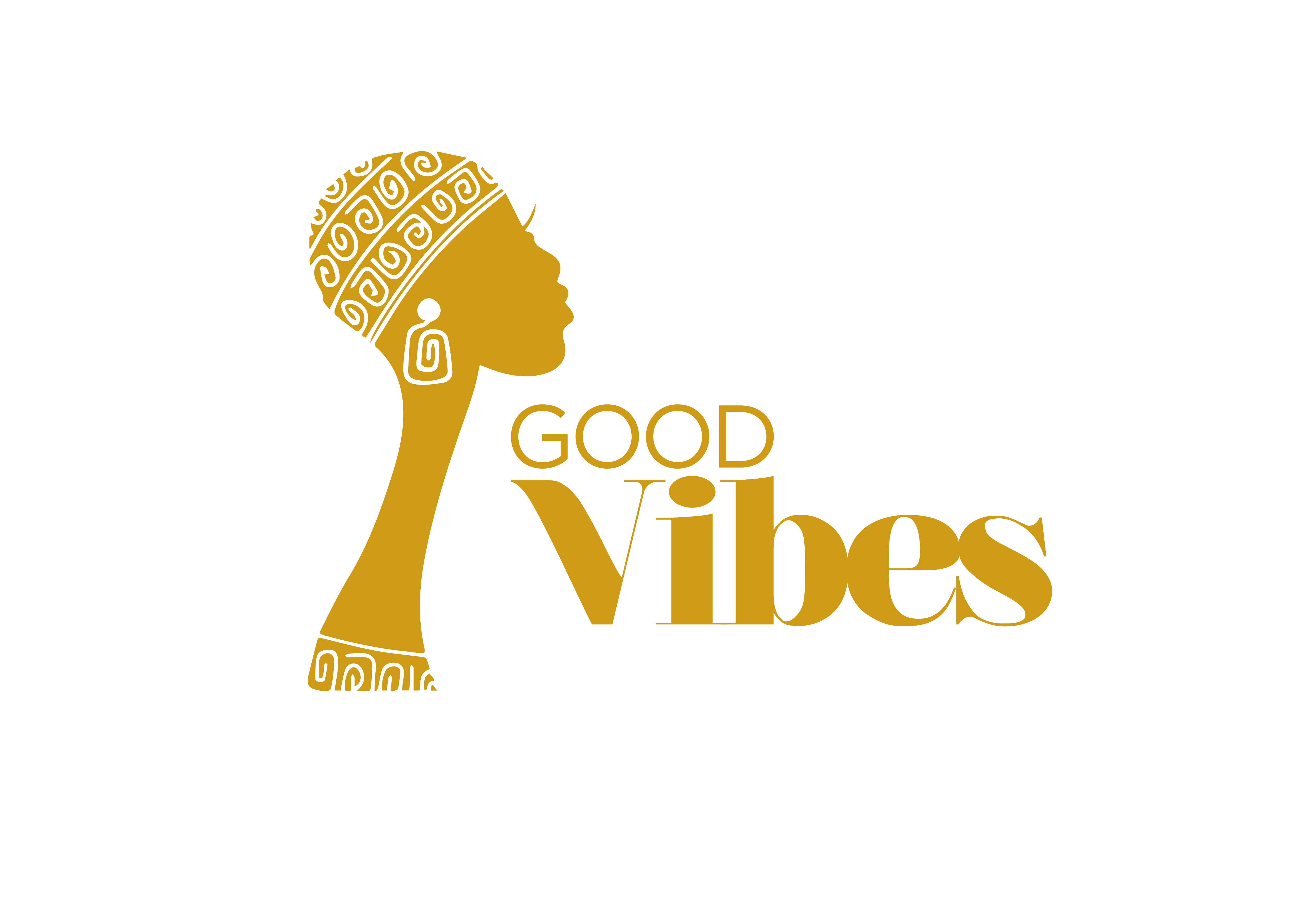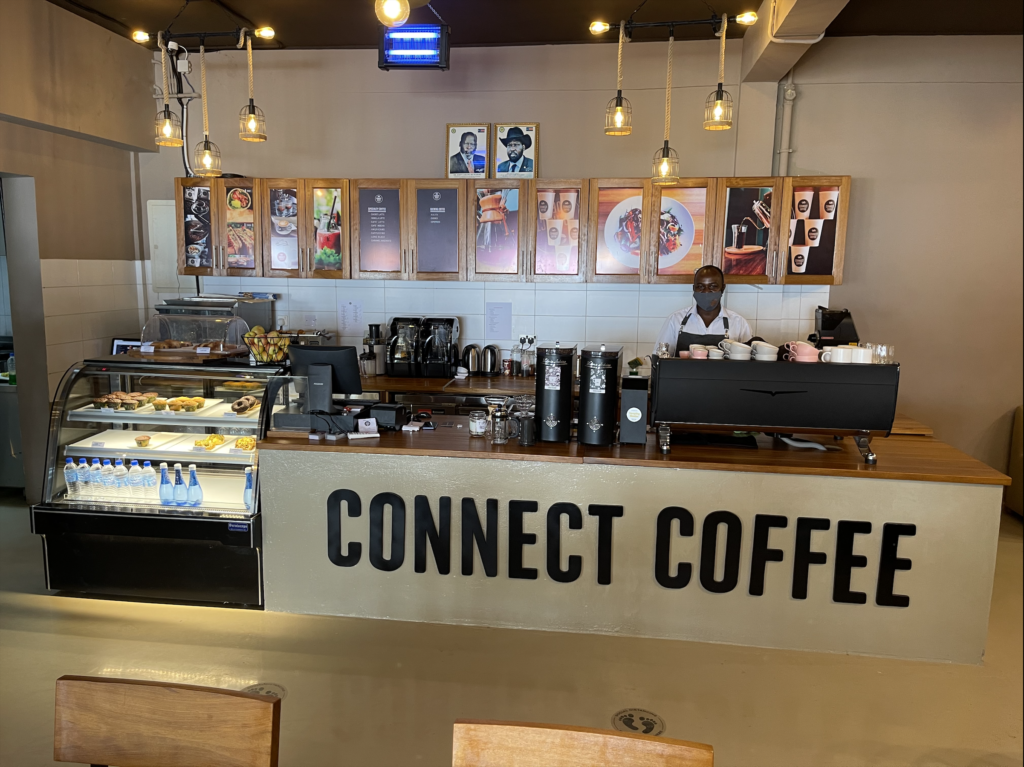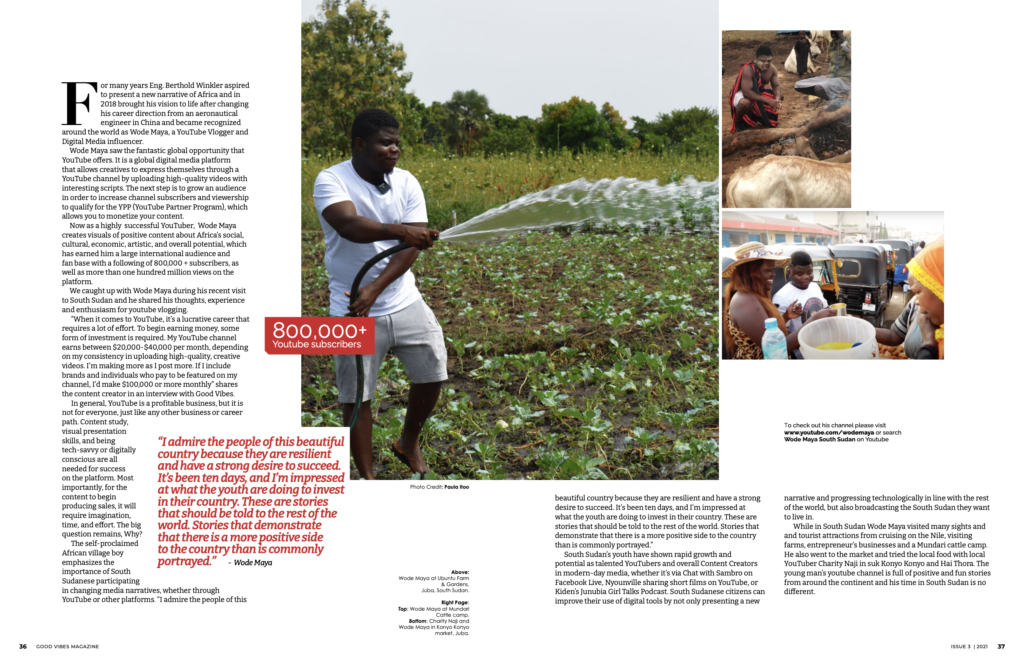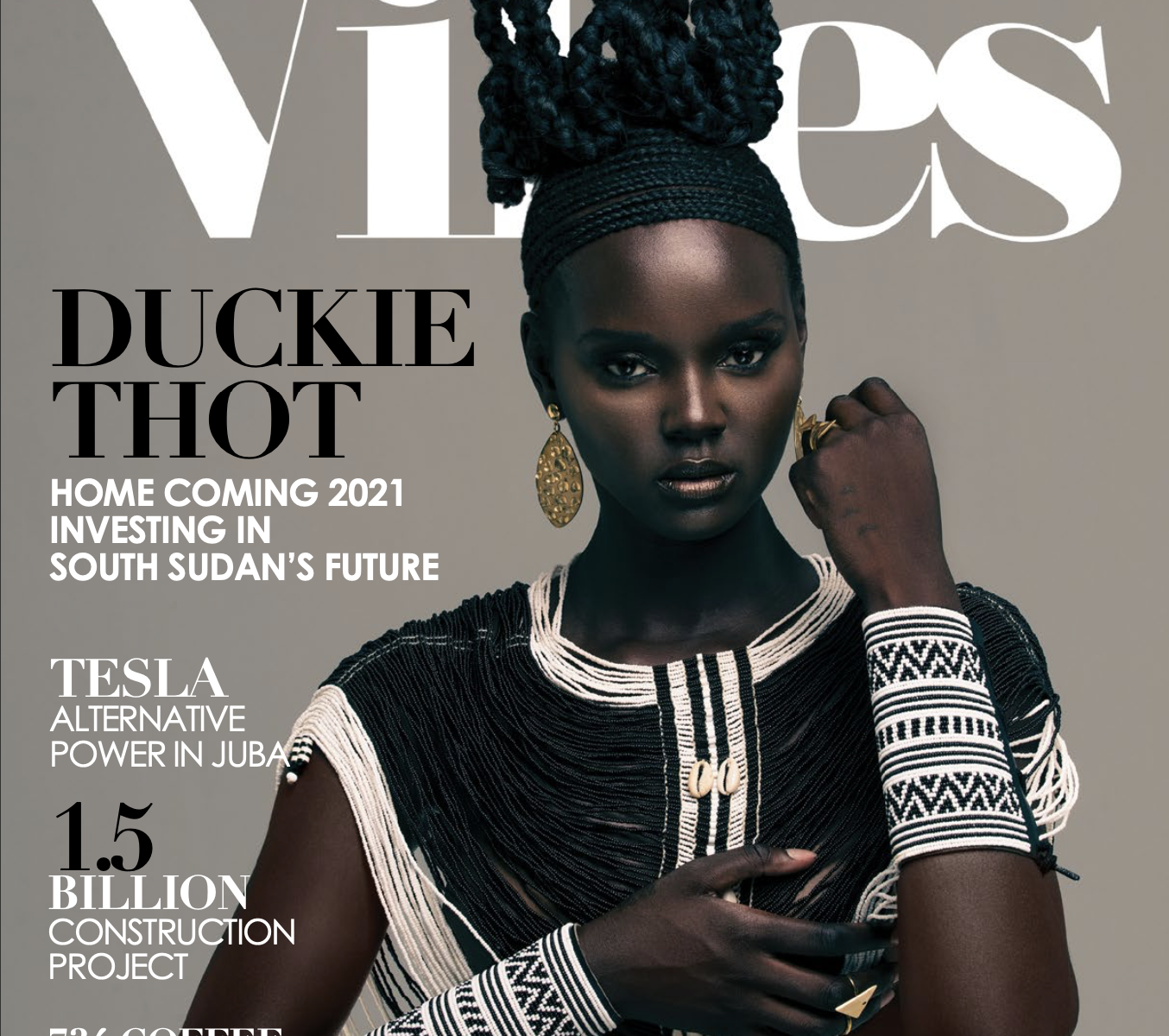A SHADY CONVERSATION (Skin Bleaching)
South Sudan is greatly hailed as a country that hosts one of the darkest- toned groups of individuals in the world. Many of our models like Adut Akech, Anok Yai, Alek Wek, Duckie Thot and Ajak Deng were all scouted due to their unique, rich and mesmerizing complexions. Their distinctive frames and elongated strides have dominated catwalks all around the world. Their striking complexions have presented our people with the edge to take over the fashion industry.
However, back home and in the various diasporic communities, there are long-held beliefs that our dark skin tones are not to be embraced or celebrated.
As we look forward to developing our country we, as the youth of the young nation, need to consider how we want to shape and build our nation through all dynamics. One of these avenues includes beauty politics and identity politics focusing on skin bleaching and how it has affected and continues to affect our societies.
This is the reason the Good Vibes team has embarked on the journey towards contributing to the essential dialogue, without the intent of shaming or attacking anyone but rather as a way of evaluating and analyzing this practice in an attempt to strengthen a positive and proud sense of belonging and value for all people.
THE BACKGROUND OF BLEACHING
There is no doubt that the contemporary globalized world experiences tremendous racial dilemmas. These dilemmas are a result of decades and centuries of slavery, colonialism, imperialism and capitalism perpetuated by the European and Western world.
With these socially constructed racial dilemmas, our ideas of beauty and thus beauty practices have been influenced. Bleaching is a phenomenon that has affected many of our societies due to the prevailing racial axis in which they operate.
Skin bleaching or skin whitening is a practice in which people intentionally attempt to lighten or whiten their skin through the use of creams, lotions, soaps, injections or pills. All these products aim at reducing the amount of melanin in the skin. Melanin is the pigment that cells produce which determine how dark or how light a person’s skin, hair and eye color are; the more melanin one has in their body, the darker one is and vice versa.

The motivating factor behind skin bleaching is colorism which has created social and racial hierarchies.
It is a product of racist ideologies and a heteronormative neoliberal form of beauty standards which constitutes
the notion that white or lighter skin is attached to good, purity, beauty, intelligence and wealth whilst black or darker skin is connected to bad, evil, unattractiveness, stupidity and poverty. Colorism bears the idea that the closer one is to whiteness the more beautiful, smarter and richer one is.
However, it is paramount to note that racism alone does not perpetuate this system. Other factors such as class, gender, capitalism and culture of beauty, play major roles influencing the promotion of skin bleaching.
SOUTH SUDAN IN MOTION
South Sudan in the post-colonial world offers a unique case because it was dually colonized (by the British and Afro- Arabs) as opposed to most states today having had only one colonial master. The discourse on beauty politics, and in connection to skin color, has always been a taboo despite the practice taking over the South Sudanese community.
During days of colonization and under Sudan’s rule, South Sudanese were considered the outcasts in a predominantly Muslim and Afro-Arab society. Many were prosecuted, judged and shunned from society due to their skin color. South Sudanese lacked access to basic or good education, healthcare, jobs, residences, leisure activities and politics due to their dark complexion. This thus prompted many to seek ways of assimilating with the dominant Arab culture in order to gain social and class mobility.
In present days, skin bleaching has become a coming-of-age ritual for many South Sudanese, especially amongst the female demographic. Young girls are shown where to purchase certain products, how to mix and use the creams as well as being equipped with other tips and tricks. Many neighborhood kiosks in Juba and Khartoum have made accessibility easier by supplying the different creams, soap, lotions and pills necessary in the quest for lighter skin.
Many wedding preparations are embedded with regimens for skin lightening. Often when a woman is preparing to get married, she is put through a rigorous process of skin bleaching, including not going out most days. She is also meant to shower and re-apply the bleaching products as frequently as three times in a day.
THE EFFECTS OF SKIN BLEACHING AND WHITENING
Many researchers, doctors and cosmetologists have pointed out the detrimental nature of skin bleaching. The main culprits are mercury, hydroquinone and steroids. These various skin whitening creams, soaps, lotions and injections present various risks such as kidney, nerve and/or liver damage, steroid acne, mercury poisoning, neurological complications, various cancers including blood cancer (leukemia), depigmentation, thinning of the skin and abnormalities in newborn babies when used during pregnancy.
Dr. Allier Nayok, a dermatologist at Juba Teaching Hospital, works hard to shed light on the harmful effects of skin bleaching products. She points out: “These agents destroy the cell cycle melanocytes, which produce the melanin. The body becomes unable to produce the melanin, the pigment which is responsible for the normal color of the skin. When the pigment is lost, the skin becomes lighter. When this protective function is lost, it’ll be easy for the ultraviolet rays to penetrate the skin and may lead to skin cancer.”
Moreover, in an interview with CGTN, Dr. Francis Oromo, a medical practitioner at Juba Teaching Hospital points out that: “Some patients also develop deposition of these toxic agents into some organs like the liver because by the way you apply it on the skin, it’s absorbed in the blood, taken by the blood circulation system and deposited into various organs, that’s the worst part that many people are experiencing.”
One of the primary reasons that skin bleaching is harmful is because it exposes the skin’s layers to the harmful rays of the sun when it is stripped of its protective cast. The use of sun protection or sunscreens in order to combat the harmful effects of the sun’s UV rays is not promoted as much as it should be amongst the bleaching community. Sunscreen works to help the skin fight anti-aging (UVA) and anti- burning rays (UVB). When it is not used when applying skin bleaching products, a person is twice as likely to expose themselves to the repercussions of the sun’s rays.
THE WAY FORWARD
Many solutions are presented for combating skin bleaching within our communities. One solution that many governments have implemented is the banning of skin bleaching agents has only made it more expensive to get a hold of the products, but it has not eliminated them.
Many researchers call on all stakeholders to roll out education mechanisms in order to combat this practice. These educational efforts need to be constantly reinforced through the use of various media outlets such as television, radio, billboards and print media such as newspapers and magazines.
Kafuki Jada is a Juba resident who also works as a radio presenter for Advance Youth Radio. She hosts a mid-morning show titled The Cool Drive which focuses on providing health education to the youth of South Sudan. She states that, “I have spoken about skin bleaching on the radio show many times. I even brought a doctor from Juba Teaching Hospital to discuss the medical aspects of it. We also had a male and female who have bleached to come on the show to share their stories.”
and ingredients such as mercury. However, we know that banning some things may not necessarily stop the illegal flow of said products into the market. Informal markets have sprung up and garnered momentum. The banning of the bleaching agents
When asked about the reception, Jada has stated that it was overwhelmingly negative because they perceived it as an attack rather than a conversation. This comes to show that when we spark these conversations, it must come from a genuine place. Jada also proposes that any education undertaken by the media should be done in a continuous way in which it is spread out through a series of campaigns that last for months or even years.
We feel that this conversation is just the beginning of the solution and we encourage more discussion and welcome your views around this topic.
BY AJAK IBRAHIM KUEL
Download & Subscribe to Good Vibes Magazine for more articles on South Sudan.
















